Kids Help Phone Digitizes Mental Health
Meet the Vector Institute for Artificial Intelligence
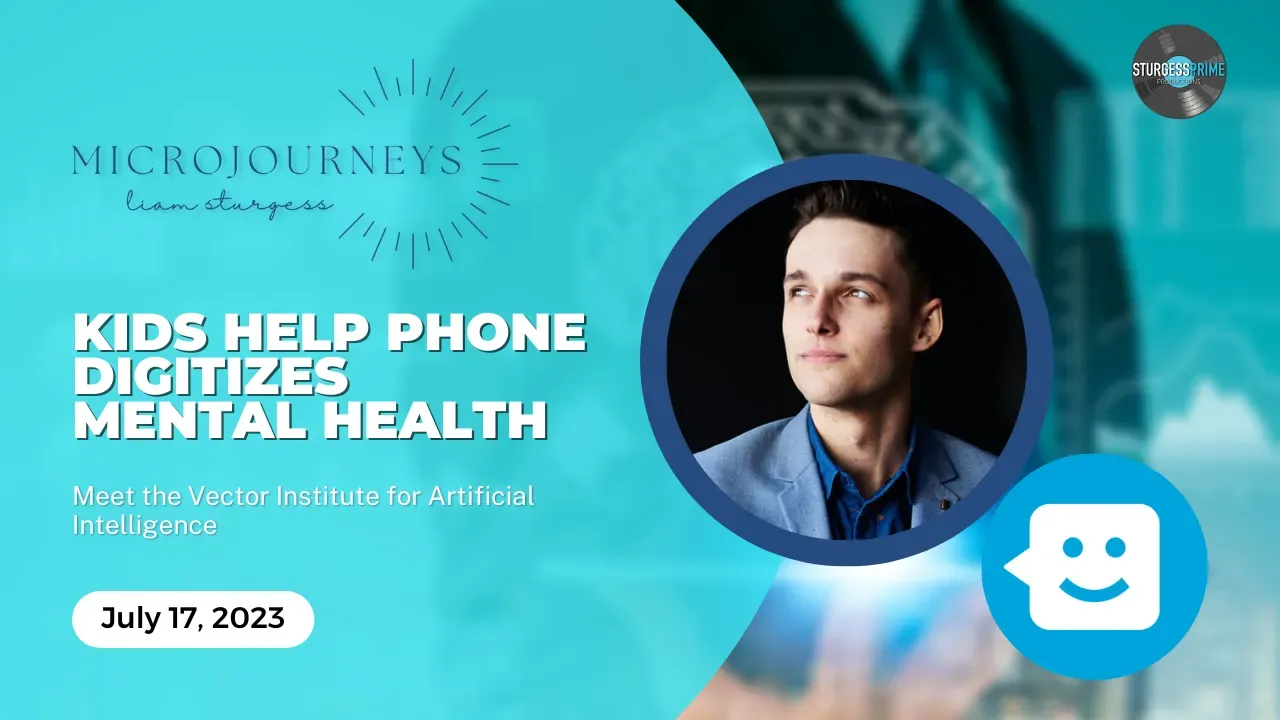
Originally published on Substack by Microjourneys.
On July 5, 2023, Kids Help Phone announced they were deploying artificial intelligence “to help respond to the ‘enormous need’ as more and more young people reach out for mental health help and support.” From the article by the Canadian Press, published on CTV News:
The planned AI will be able to recognize key words and speech patterns from young people who reach out to Kids Help Phone to help busy counsellors zero in on what they need and tailor their support accordingly.
Why are the counsellors so busy?
The 24-7 national support line for kids and adults has had a huge rise in demand for its services since the COVID-19 pandemic began. After receiving about 1.9 million calls, texts, live chats or visits to its website during 2019, Kids Help Phone has seen that number jump to more than 15 million since 2020, according to numbers provided by the organization.
According to the article, “the organization is already using some AI technology to help triage texts.” Whether by text or by voice over the phone, the idea is that the AI will catch on to key words and phrases indicating someone is at particularly high risk of, for example, harming themselves in the very near future. This allows crises to be prioritized and the most pressing situations addressed quickest.
It makes sense in theory, but as my partner Sam pointed out to me when we heard this over the radio, “why does this need to be something that AI does?” Because beyond working as a prioritization system, it allows for the identification and classification of various types of mental illness, disorder or personal crisis:
The Kids Help Phone AI tool will use "natural language processing" to identify "keywords or trigger words that correlate with specific types of issues," she said.
"If a young person uses a specific word in their communication that is correlated with or connected to a specific issue or concern, it will be flagged by this model and it will alert the professional staff," Sultan said.
For example, AI can be trained to recognize words that suggest a possible eating disorder, allowing a counsellor to turn the conversation in that direction and offer up specific resources and supports.
AI can also be trained to identify new words and trends related to situations that are causing distress and anxiety, such as a pandemic, climate change, wildfires or a mass shooting.
Okay, I’ll give you the wildfires. Depending on where you live, the last few weeks have been very hard on people forced to evacuate their homes due to the fires. The smoke hasn’t been great, either.
But the framing of most of these issues is very strange. “A pandemic”? Climate anxiety? Mass shootings? In Canada?
Furthermore, the artificial intelligence company in question can be squarely blamed for contributing to this anxiety — using the very same AI they’re now offering as the solution.
Vector Institute for Artificial Intelligence
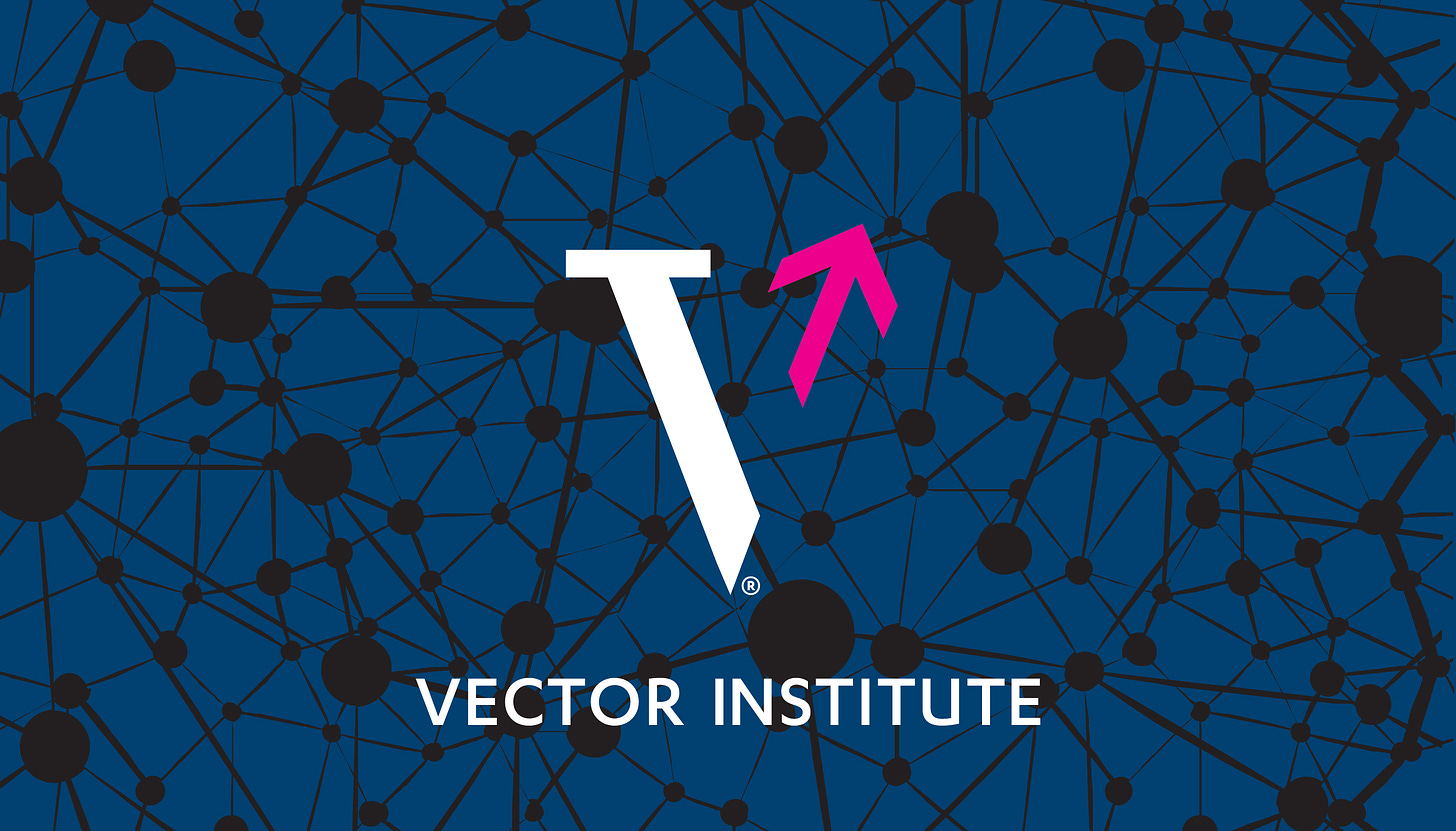
The Vector Institute for Artificial Intelligence is a Canadian not-for-profit organization based in Toronto, Ontario. It was launched on March 30, 2017 with an initial funding package of over $255 million from a variety of public and private organizations.
Funding
A notable founding funder of the Vector Institute was the Chan Zuckerberg Initiative (CZI), a philanthro-capitalist fund set up by Facebook co-founder Mark Zuckerberg and his wife Priscilla Chan with a mission “to end all diseases by end of century.”
Other notable funders from 2017-present include:
- Accenture
- Air Canada
- Bank of Montreal
- Bell
- Boehringer Ingelheim
- Canadian Imperial Bank of Commerce (CIBC)
- Canadian National Railway (CN)
- Deloitte
- Deep Genomics
- Government of Ontario
- Ontario Municipal Employees Retirement System (OMERS)
- PricewaterhouseCoopers
- Roche
- Royal Bank of Canada (RBC)
- TD Bank Group
- Thomson Reuters
- University of Toronto
Additionally, the Government of Canada provides a significant amount of money to the Institute through the Pan-Canadian Artificial Intelligence Strategy (PCAIS), dispensed by Innovation, Science and Economic Development Canada (ISED) and the Canadian Institute for Advanced Research (CIFAR).
Vector’s COVID activities
You better believe the Vector Institute was very busy during the declared COVID-19 pandemic.
On April 12, 2020, the Vector Institute announced it was repurposing “high-performance computing” NVIDIA graphics processing units to contribute to the Ontario Ministry of Health's Pandemic Threat Response (PANTHR) platform. This would “enable processing of large amounts of data spanning Ontario’s vast universal health system, allowing for deeper insights on critical issues such as risk of spread to vulnerable people; asymptomatic transmission and outbreaks; allocation of resources such as tests, ventilators, staffing; localized social distancing and closure policies; and, stabilization of supply chains for ventilators and PPE.”
On April 16, 2020, pharmaceutical giant Roche announced the launch of its “Roche Data Science Coalition” which included the Vector Institute as a collaborator, in order to work “with the global community to develop solutions to the challenges of the COVID-19 pandemic.”
MyTrace
On April 24, 2020, the Vector Institute held a webinar titled “Innovating Through COVID-19 webinar - Digital Contact Tracing while Preserving Privacy: MyTrace.ca” during which they launched a contact tracing application called MyTrace. It was led by Alán Aspuru-Guzik, a University of Toronto professor and faculty member at the Vector Institute.
Another participant in the webinar was Ashleigh Tuite of the Dalla Lana School of Public Health. Tuite did some serious feather-ruffling in April 2022 when she published a study in the Canadian Medical Association Journal titled “Impact of population mixing between vaccinated and unvaccinated subpopulations on infectious disease dynamics: implications for SARS-CoV-2 transmission.” She and her co-authors, David Fisman and Afia Amoako, used a fatally-flawed statistical model to argue that people are who had not received a COVID-19 genetic vaccine (the “unvaccinated”) were a danger to those who had (the “vaccinated”).
The Vector Institute participated in the development of the MyTrace application, which was shut down in June 2020 when the Government of Canada announced COVID Alert, a national contact tracing app (brought to you by the same folks that gave us ArriveCAN!)
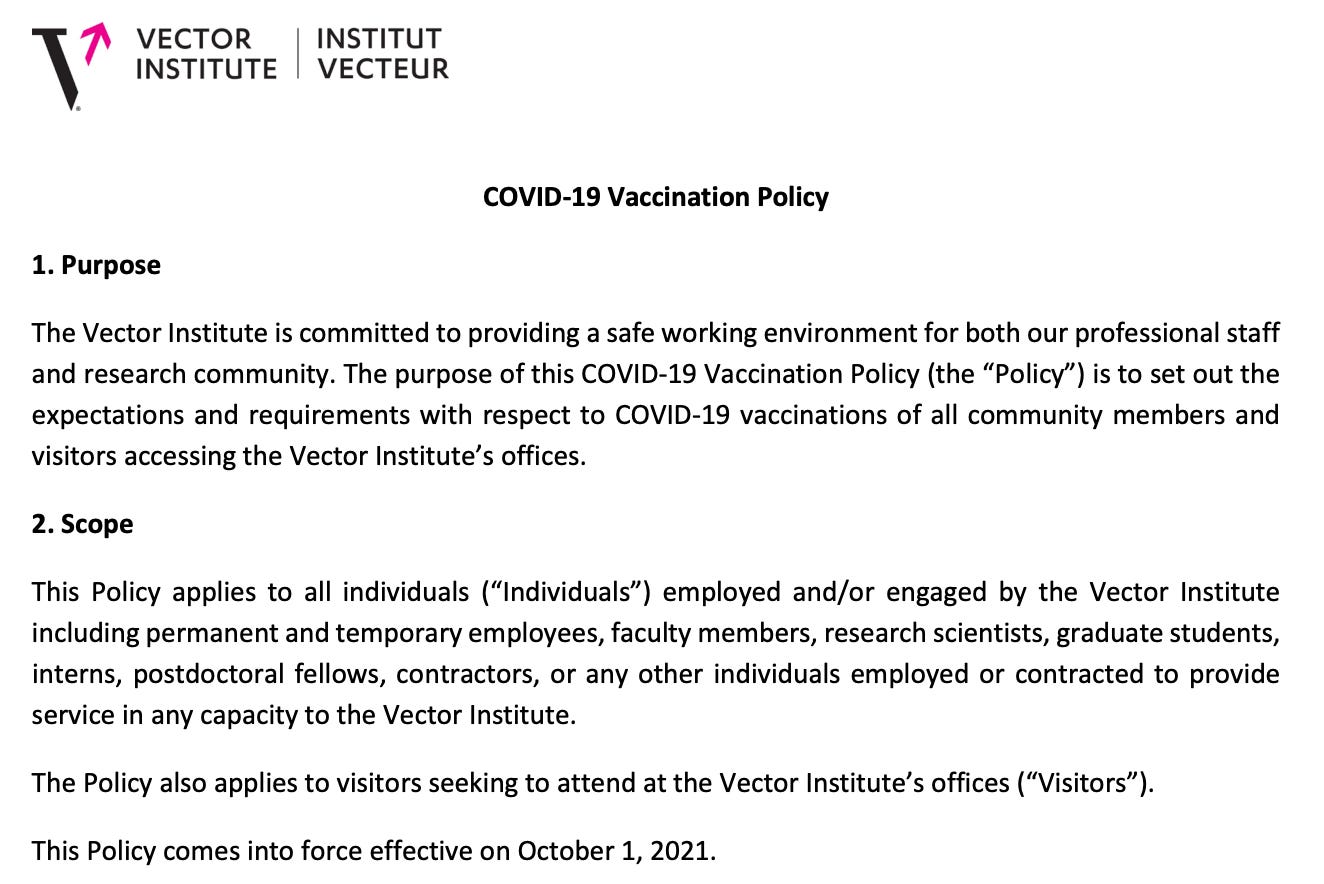
On September 16, 2021, the Vector Institute announced a mandatory COVID-19 vaccination policy for all staff, contractors and visitors. The policy went into effect October 1, 2021, with those in non-compliance denied access to the facility and threatened with termination.
Viral AI

A Vector Institute researcher named Bo Wang contributed to the development of a digital genomics platform called Viral AI, described in a press release as “an AI-enabled genotyping tool that can analyze viral genome data from a nasal swab.” Viral AI was created under the leadership of DNAstack, a precision medicine software company, and the CAD $5.4 million Government of Canada-funded COVID Cloud Supercluster project.
Don’t worry, though — all that money didn’t go to waste just because COVID-19 is official “over!” According to Wang, “their tool could be repurposed for any other virus, like the common flu.”
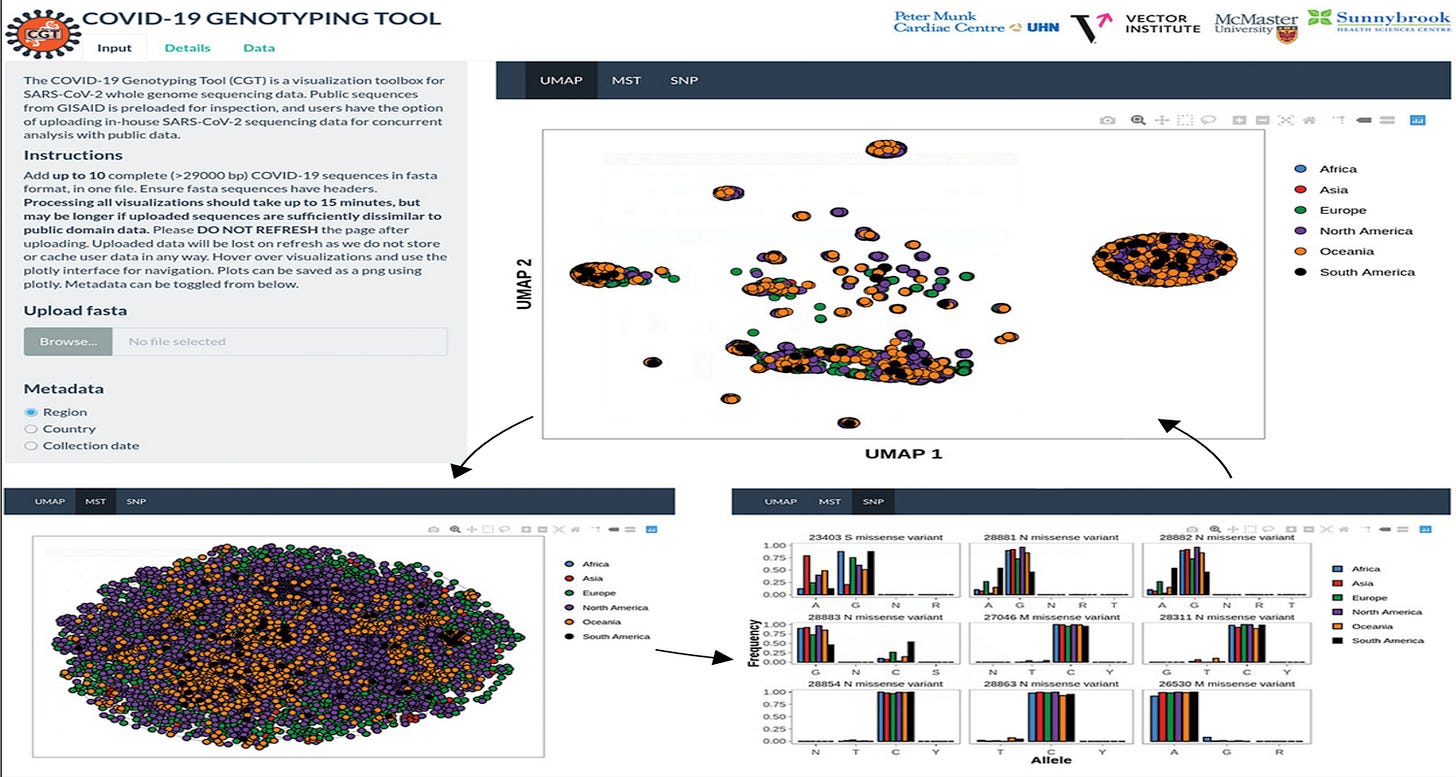
A PhD student working in Wang’s lab named Hassaan Maan worked on a similar project called the COVID-19 Genotyping Tool. One of his collaborators was Samira Mubareka, who allegedly participated in the isolation and sequencing of the SARS-CoV-2 virus from the very first COVID-19 patient in Canada, way back in March 2020.
On February 11, 2022, the Vector Institute published a study titled “Using AI to Help Solve the Long COVID Puzzle” describing how Vector “applied natural language processing (NLP) techniques to over 460,000 Twitter posts by people who had self-reported long COVID to see if any patterns or signals would arise amidst the social media noise.”
MaRS Discovery District
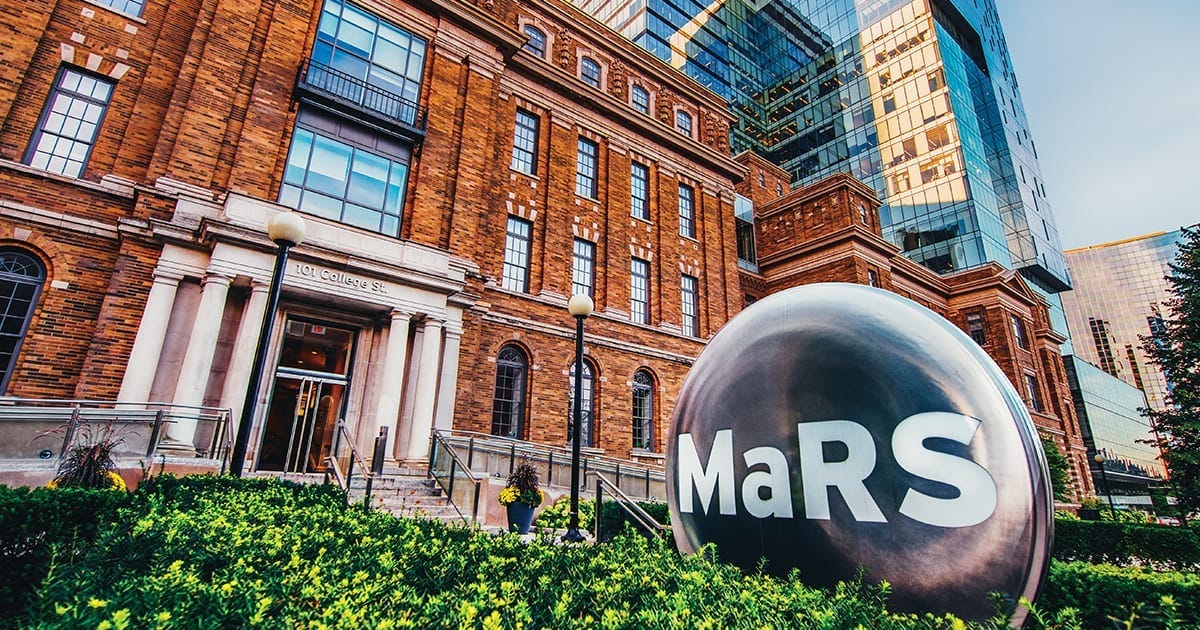
The Vector Institute is headquartered at the MaRS Discovery District, a public-private partnership in Toronto, Ontario that funds companies that “streamline our healthcare system, reduce the effects of climate change, unlock new cures for disease, envision the jobs of the future, improve mobility in crowded cities, and provide food and clean water for a growing population.”
Funding for MaRS has come from a variety of sources, including Amgen, AstraZeneca, Cisco, the City of Toronto, Deloitte, the Consulate General of the Netherlands in Toronto, Eli Lilly, GlaxoSmithKline, the Government of Canada, the Government of Ontario, Janssen and its parent Johnson & Johnson, Mastercard, Microsoft, Novartis, Roche, the Rockefeller Foundation, the Toronto Stock Exchange (TSX), and the University of Toronto.
There are many interesting companies that have found themselves based at or funded by MaRS and its subsidiaries. The aforementioned DNAstack is part of the MaRS Investment Accelerator Fund portfolio.
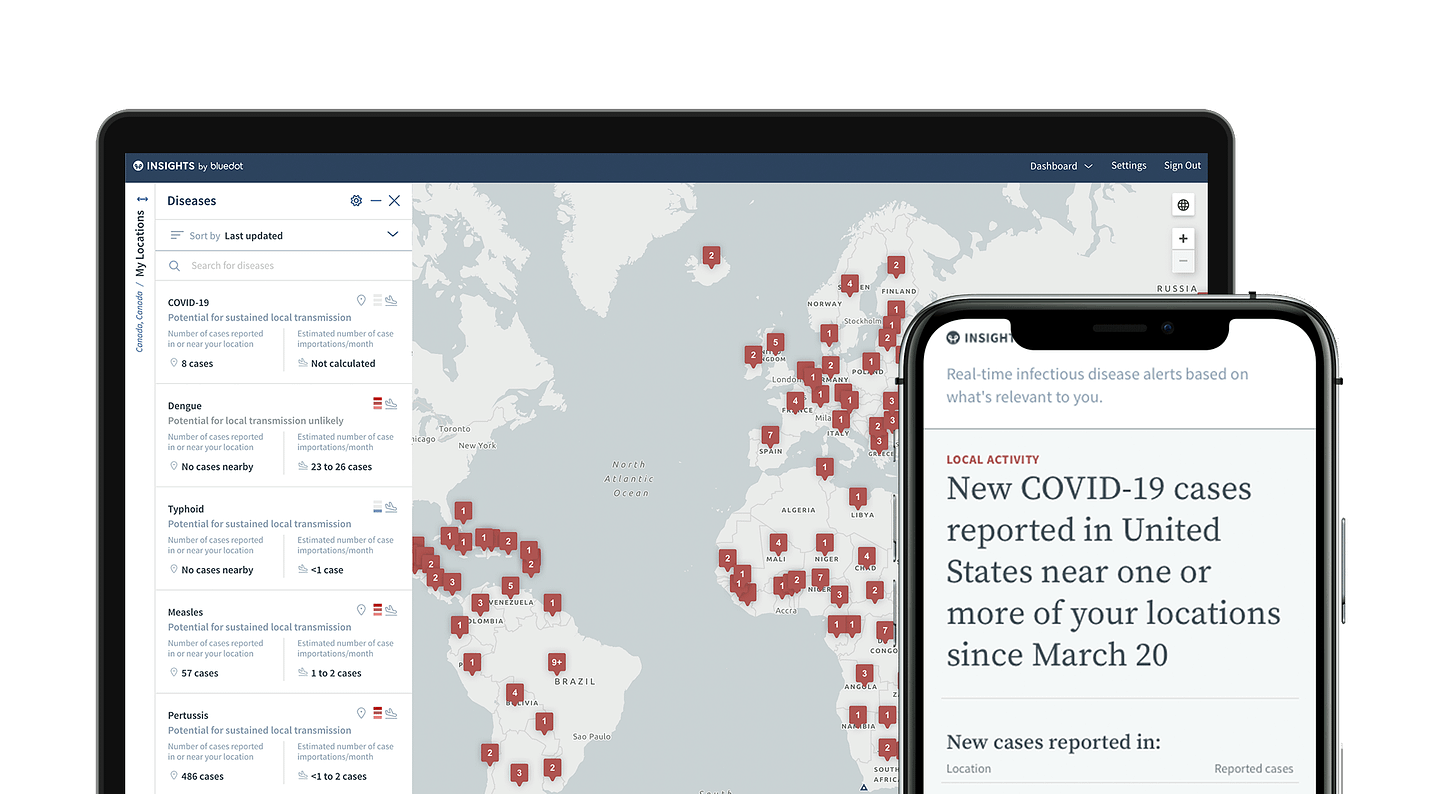
Another is BlueDot, an “outbreak intelligence platform” which claims to have been the first company in the world to detect the outbreak of COVID-19 in Wuhan, China — nine days before the World Health Organization sent out their own public warning.
Merck once set up shop as tenants at MaRS, as did Public Health Ontario.
Deep Genomics
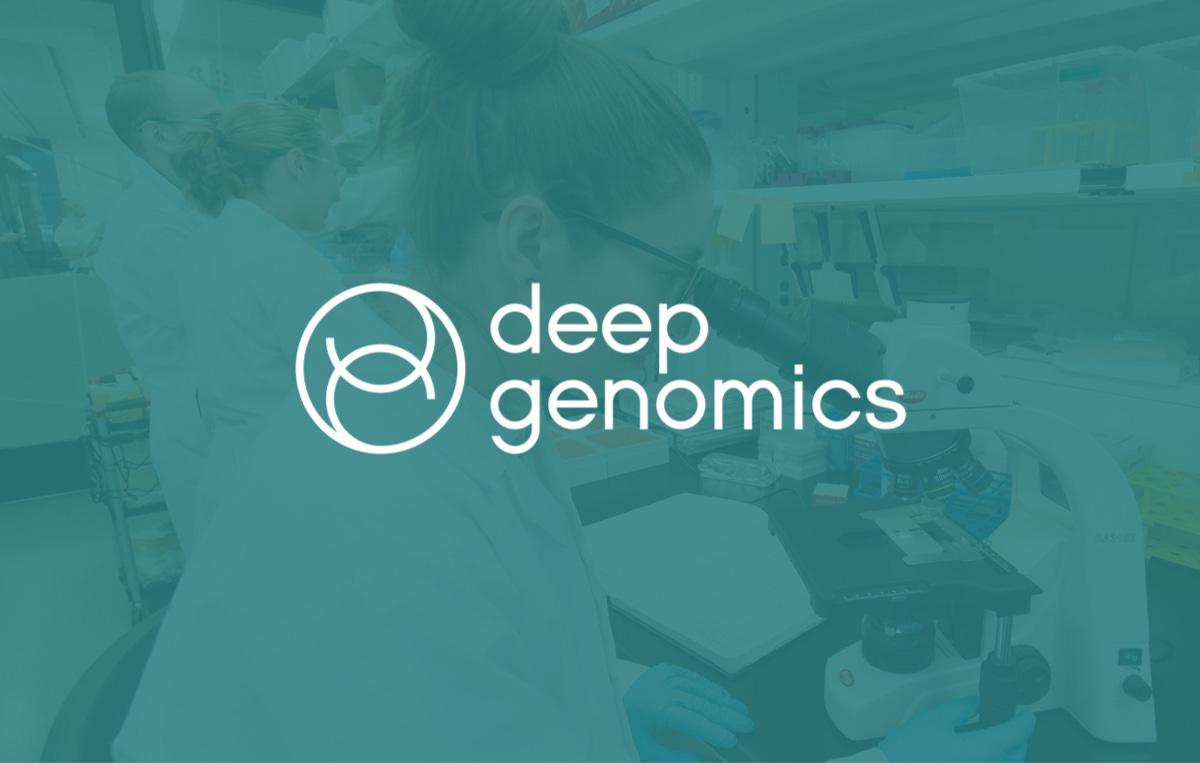
One company in MaRS Discovery District’s portfolio that is of particular note is called Deep Genomics, an artificial intelligence drug discovery company founded in 2015 by Brendan Frey. Frey would go on to become one of the co-founders of the Vector Institute for Artificial Intelligence just two years later.
Deep Genomics is the result of a personal struggle in Frey’s life, having been told that his unborn child suffered from a genetic defect. This led him to seek to “transform medicine by applying the hot field of deep learning to genomics.” In September 2019, the company announced that it had “made the first-ever discovery of a diseases treatment and drug candidate using artificial intelligence.”
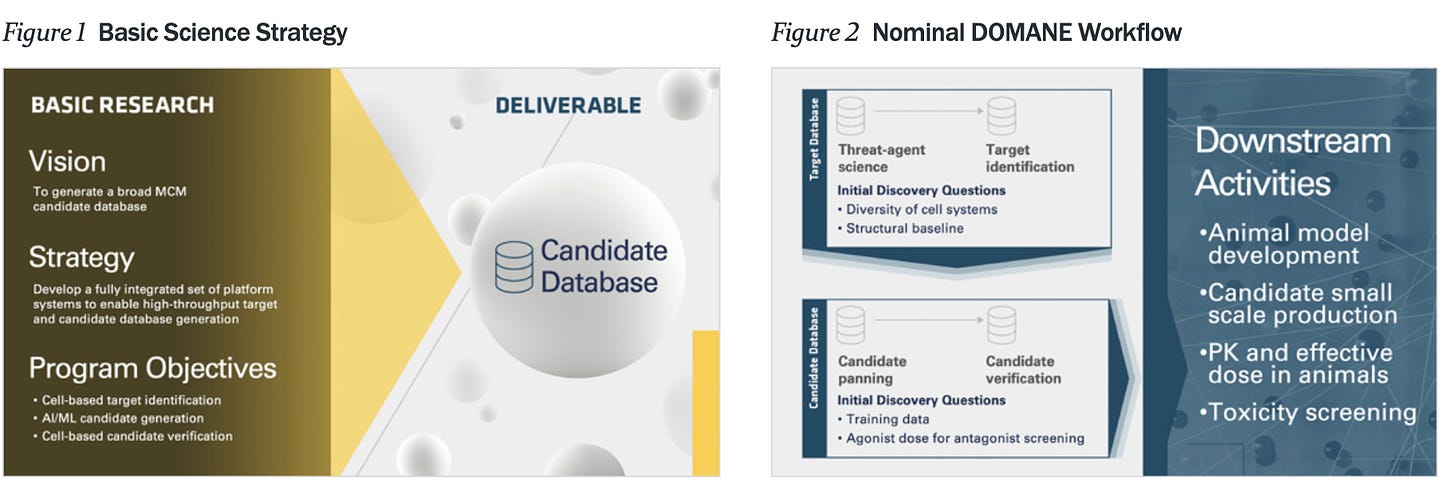
This is a remarkable claim, given its very close proximity to the launch of a very similar program in the United States. Dubbed Discovery of Medical Countermeasures Against Novel Entities (DOMANE), the Defense Department-funded project published its first white paper just three months later on December 11, 2019, describing its ability to “identify threat [mechanisms of action], drug targets and drug candidates” in response to biological warfare agents. DOMANE was deployed by Dr. Robert Malone the very next month, resulting in the identification of remdesivir, famotidine and ivermectin as potential treatments against COVID-19.
On October 26, 2021, Deep Genomics announced that Tal Zaks, Chief Medical Officer at Moderna, had joined the company as an advisor. Some other notable advisors and team members include:
- Peter Barton Hutt, former Chief Counsel for the Food and Drug Administration (FDA) and current Moderna board member
- Steve Jurvetson, early investor in Elon Musk’s SpaceX, Tesla, and The Boring Company
- Art Krieg, formerly of Pfizer
- Mark Edbrooke, formerly in charge of AstraZeneca’s work with Moderna
- Yann LeCun, chief AI scientist at Facebook
What about Kids Help Phone?
Kids Help Phone surely does a great service by giving children, youth and adults alike an outlet to share and be heard in times of emotional and psychological hardship. But the idea of an artificial intelligence company like the Vector Institute deploying to process such intimate information is truly unnerving, particularly given their proximity and relationships with so many people and companies whose disastrous actions over the last few years have caused so much suffering.
Funding
Kids Help Phone has received funding in recent years from a variety of organizations with an interest in managing the COVID-19 response:
- Center for Disaster Philanthropy, itself funded by AstraZeneca, Johnson & Johnson and the Rockefeller Foundation
- Cisco
- Governments of Canada, Manitoba, New Brunswick, Northwest Territories, Nova Scotia, Ontario and Saskatchewan
- Johnson & Johnson
- London Drugs
- TikTok
- Walmart
That TikTok is funding a mental health service for children and youth is an upsetting thought, given that the social media app seems to be playing an outsized roll in royally messing up the psychological wellbeing of this exact age group.
Equally scary is that several of Kids Help Phone’s donors are subsidiaries of Tencent, the Chinese corporation that owns WeChat — a messaging application infamous for its use by Chinese authorities for mass surveillance of its citizens. It’s often described as a core piece of China’s social credit system, and according to Elon Musk, is what Twitter is going to turn into.
COVID-19 activities
In December 2020, the Toronto Star reported that Kids Help Phone was receiving more than double the number of crisis calls compared to 2019, primarily driven by isolation:
The main driver of calls, Simon said, has been isolation, with calls related to loneliness up 50 per cent from pre-pandemic rates. Others have been reaching out with concerns about missed milestones, like prom and graduation, and some expressed self-esteem and body image issues earlier in the pandemic.
But not to worry, children — a solution was around the corner.
This Is Our Shot
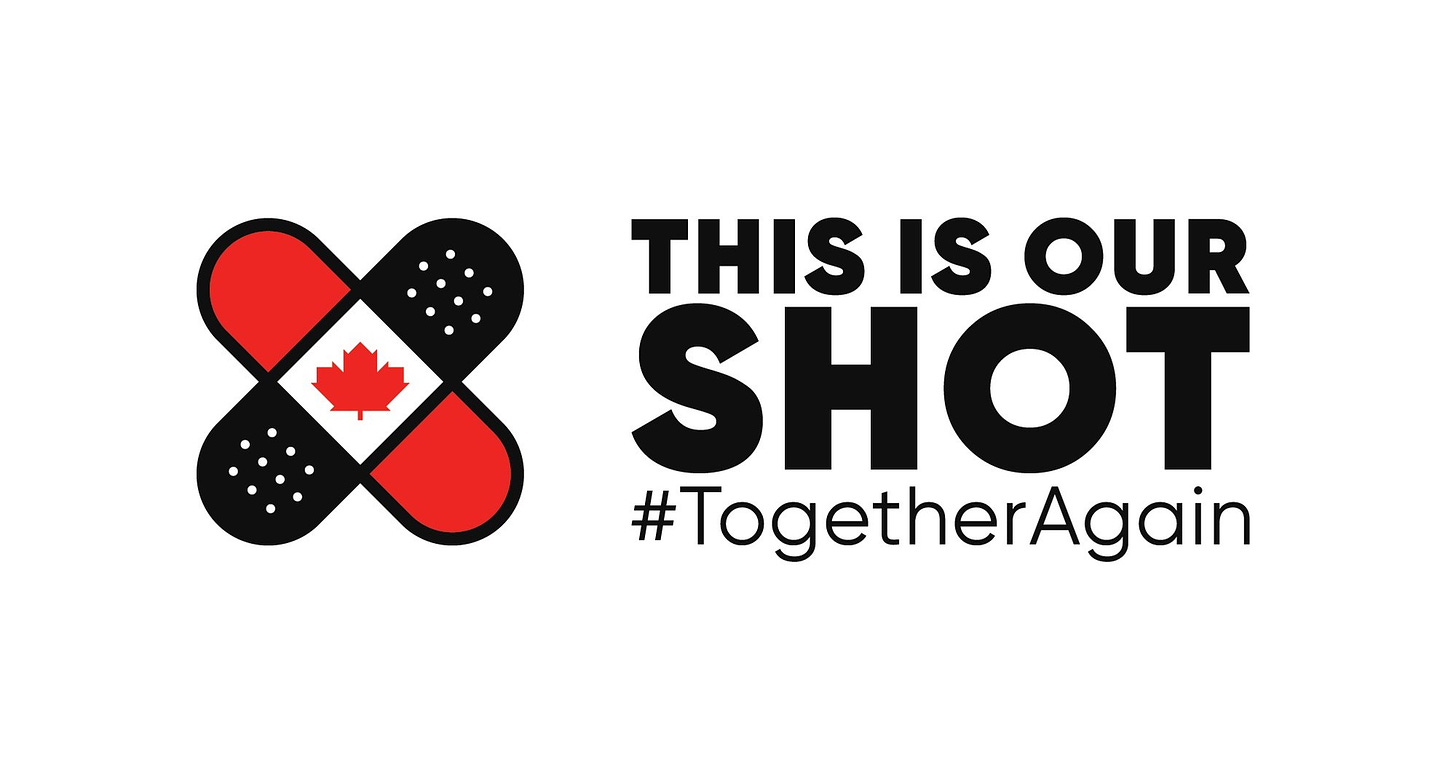
At the end of April 2021, a campaign was launched called This Is Our Shot. Described as “a national, grassroots movement aimed at replacing vaccine hesitancy with vaccine confidence,” the campaign moved swiftly to promote the COVID-19 vaccination campaign which was quickly making its way to younger and younger age cohorts.
A number of Canadian celebrities joined in, including Ryan Reynolds, Michael Buble, Clara Hughes, Roberta Bondar and Chris Hadfield. All proceeds raised from the campaign went to support Kids Help Phone, ending in December 2021 with a big ol’ $111,839 cheque.
But “grassroots” is probably not the right word to use. The organizations behind the campaign included the South Asian COVID Task Force, 19 to Zero, Latin American COVID Task Force, Black Physicians of Canada, Canadian Muslim COVID-19 Task Force, Siksika Health Services and BlackNorth Initiative.

First of all, 19 to Zero is an out-and-out behavioural science campaign, otherwise known as a “nudge” program. As I’ve previously reported, the program is funded by a range of organizations that are the absolute opposite of “grassroots.”
Alberta Innovates, an agency of the Government of Alberta, gave 19 to Zero $392,080 in September 2020 for a project titled “Changing COVID-19 Behaviours through a data-driven targeted marketing campaign.” I’m sure the close financial partnership Alberta Innovates has with Pfizer had absolutely no bearing over this funding decision.
The Government of Canada provided 19 to Zero multiple federal grants to combat “vaccine hesitancy,” including the more recent $480,000 from the Public Health Agency of Canada’s Immunization Partnership Fund for a project titled “Reinventing the Critical Role of Schools in Building vaccine Confidence across Canada.”
Then, of course, there’s the fact that 19 to Zero is funded by Moderna and Pfizer directly — something the organization decided to remove from its website during the This Is Our Shot campaign.
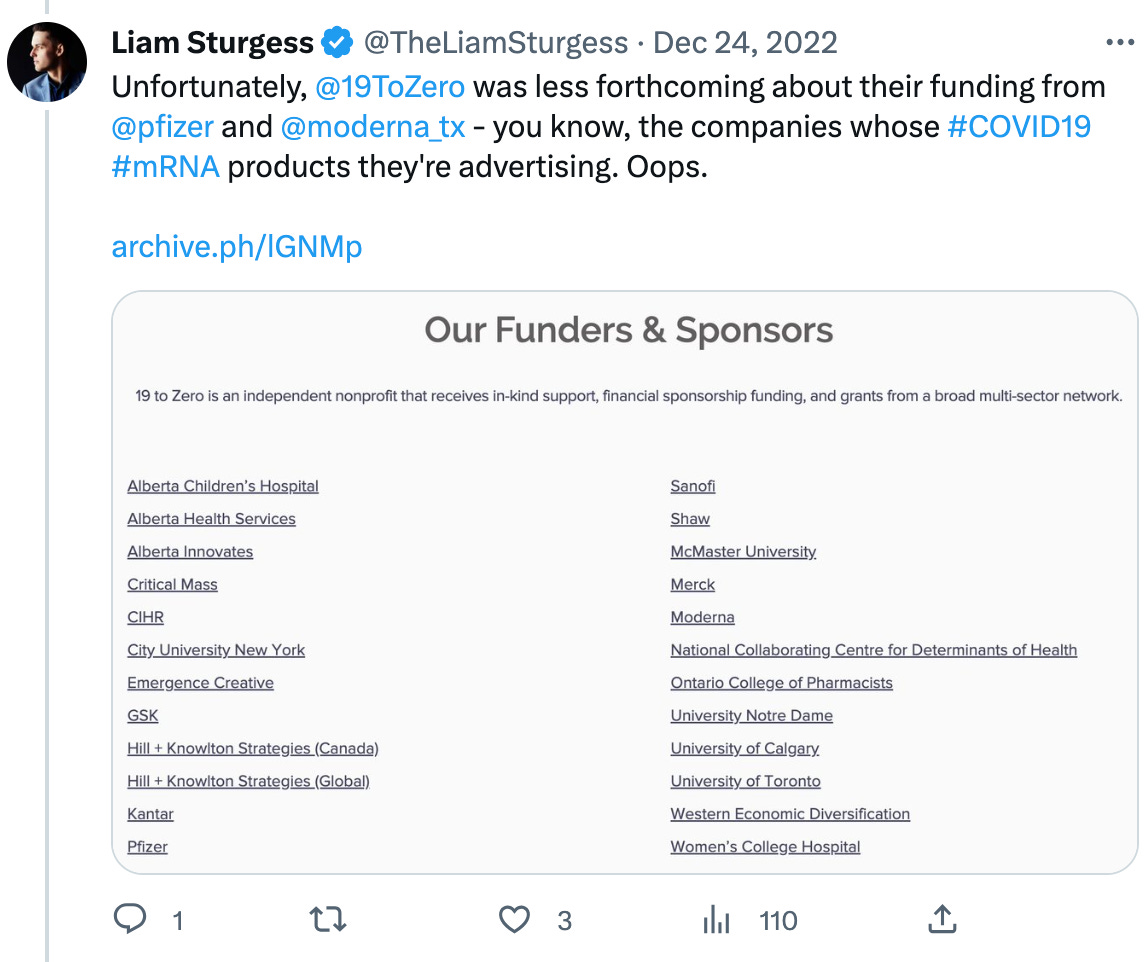
Other funders of note include Alberta Health Services (AHS), the Canadian Institutes of Health Research (CIHR), GlaxoSmithKline, Hill+Knowlton Strategies, Sanofi, Shaw, Merck, the Ontario College of Pharmacists, and the Universities of Calgary and Toronto.
Uh-huh. Grassroots.
The South Asian COVID Task Force (SACTF), Latin-American COVID Task Force and Canadian Muslin COVID-19 Task Force (CMCTF), as it just so happens, are all partners of 19 to Zero.
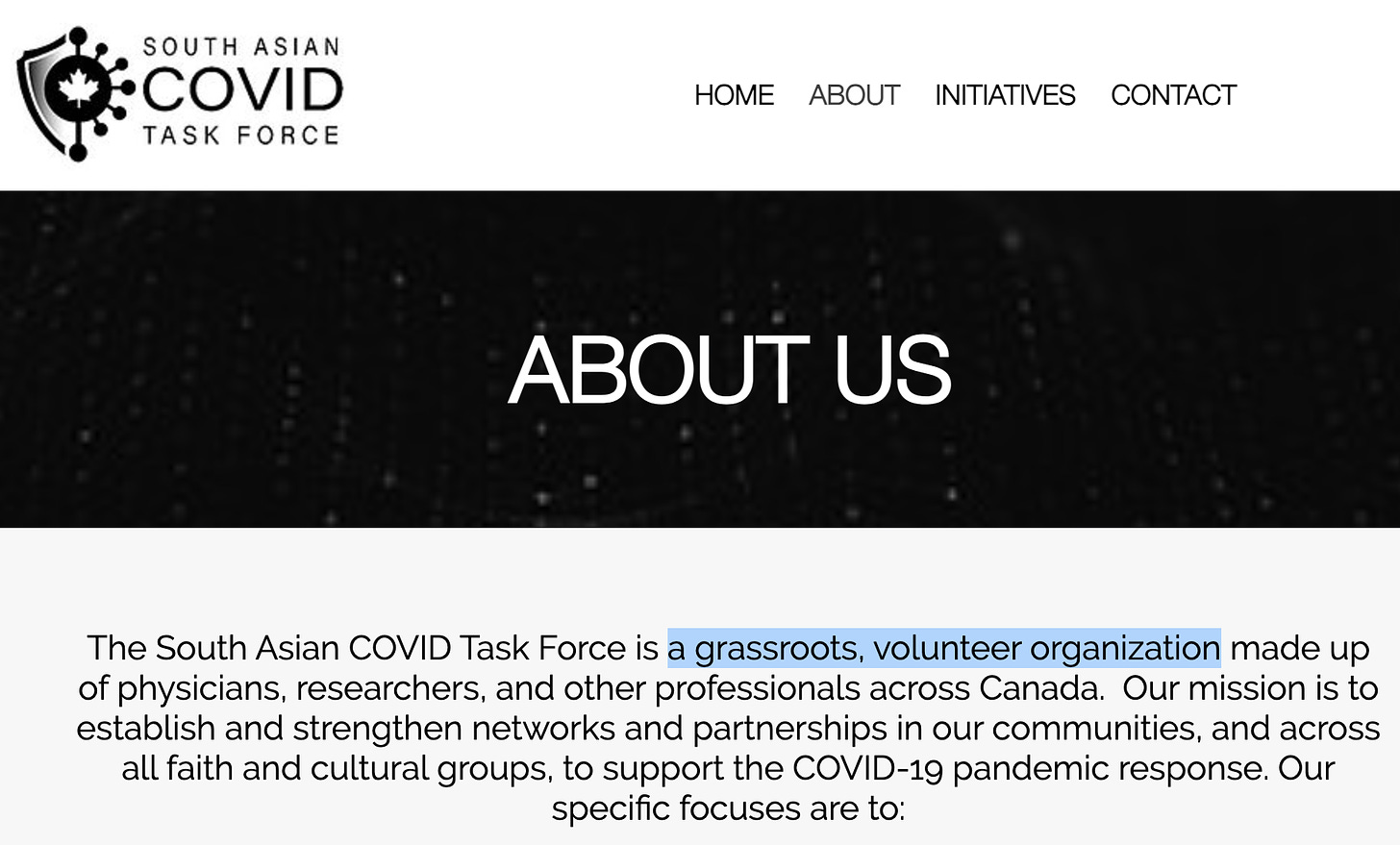
The South Asian COVID Task Force also describes itself as “grassroots.” But once again, SACTF’s partners are themselves heavily funded by the Governments of Canada, Ontario and Toronto, such as is the case with the Council of Agencies Serving South Asians (CASSA).
Anju Anand, SACTF’s founder, also co-founded the This Is Our Shot campaign.
Funding
Then we must ask, who contributed to the $111,000 paycheck paid out by the campaign to Kids Help Phone?
- Companies actively working on widespread introduction of vaccine passports and digital ID platforms, including Accenture, IBM and Mastercard;
- Canada’s biggest airlines, including Air Canada and WestJet, as well as the Toronto Pearson International Airport and the Greater Toronto Airport Authority (GTAA);
- Various government-directed public health and government-funded health care organizations, including Alberta Health Services (AHS), Bayshore HealthCare, Cleveland Clinic Canada, Hamilton Health Sciences and Unity Health Toronto;
- Big tech giants including Amazon, DoorDash, Facebook, Google, Hewlett-Packard (HP), Spotify, TikTok, Twitter and YouTube;
- Canada’s primary financial institutions, including the Bank of Montreal (BMO), Canadian Bank Note, Canadian Imperial Bank of Commerce (CIBC), Royal Bank of Canada (RBC), Scotiabank and TD Bank Group;
- Boston Consulting Group (BCG), whose role in the global COVID-19 response includes the co-development of New York’s Excelsior Pass and helping establish remdesivir as the standard of care for COVID-19 in hospitals across the United States (thanks in part to the now-infamous Jordon Walker);
- The Business Council of British Columbia and the Business Council of Canada, whose collective membership includes Berkshire Hathaway, BlackRock, Goldman Sachs, HSBC, Janssen, Johnson & Johnson, JPMorgan Chase, McKinsey & Company, Meta Platforms and Pfizer;
- Canadian National Railway (CN), a company owned in large part by Bill Gates through the Bill & Melinda Gates Foundation Trust and Cascade Investments;
- Pharmaceutical giants including GlaxoSmithKline and Merck, as well as Innovative Medicines Canada, a national trade association representing AstraZeneca, Emergent BioSolutions, Gilead Sciences, Medicago, Novartis, Pfizer, Purdue Pharma, Roche, Sanofi Pasteur and Takeda Pharmaceuticals, among others;
- Media giants including the Globe and Mail, Postmedia Network, Rogers Communications, TELUS, the Toronto Star and Verizon;
- Professional associations such as the Ontario Medical Association (OMA), the Convenience Industry Council of Canada (CICC), Neighbourhood Pharmacy Association of Canada, Ontario Society of Professional Engineers, Ontario Trucking Association and Ontario’s Universities;
- Rexall, one of Canada’s largest pharmacy chains;
- ScienceUpFirst
- TC Energy
- University of Calgary, Manitoba and Toronto and York University
- Walmart
Conclusion
Kids Help Phone’s decision to integrate artificial intelligence into its services will allow it to not only screen, capture and categorize highly sensitive health and personal data on each caller, but also seeks to actually take on some of the tasks of a physician. No matter how powerful an AI language processor is, its proposed use will inevitably lead to incorrect diagnoses of things like eating disorders, depression, anxiety and gender dysphoria based on the biased parameters of the programmers and operators.
Nothing can replace the in-person relationship between a patient and their doctor, cultivated over the course of months and years. “Key words” as a basis of diagnosis is utter nonsense. Children in distress will use whatever language feels most appropriate, even if they’re misguided or lying.
Regardless, Kids Help Phone and the Vector Institute for Artificial Intelligence are both organizations whose funding partners have plenty of financial motivation to harvest, use and sell this private data to people and companies with no interest in the wellbeing of the child or young adult calling in for help.
As I said before, I have absolutely no doubt that Kids Help Phone does a lot of good for a lot of people. But if they’re as enmeshed in this “Fourth Industrial Revolution” mindset as they appear to be on a cursory analysis, then perhaps its time to step up as members of the community and seek to shift some of the burden onto our own shoulders to assist our friends, family and youth in need, instead of allowing them to be caught up in this mass push towards complete, total and permanent digitization of wellbeing itself.